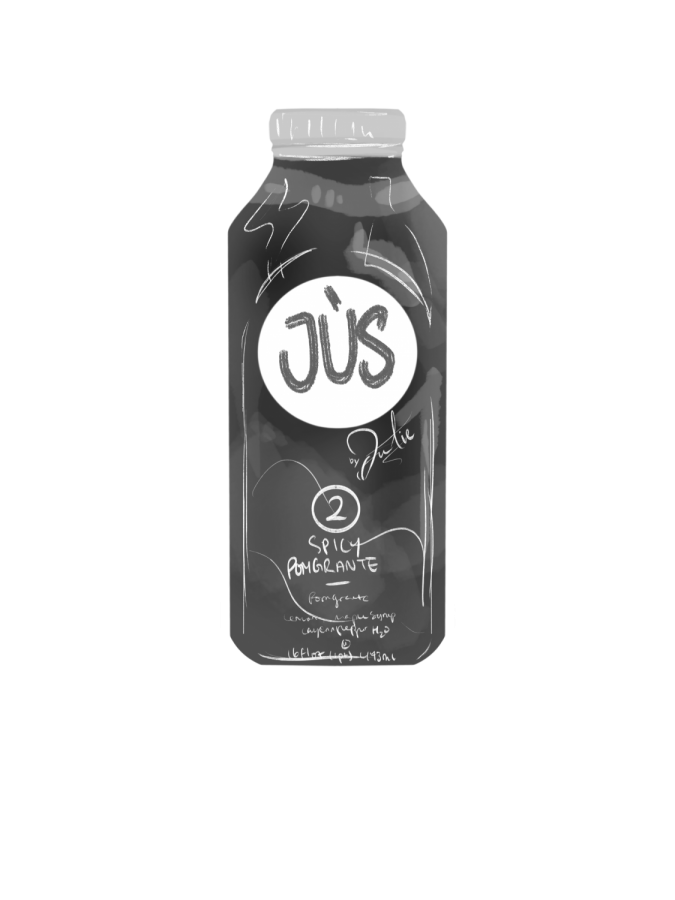Juice cleanses do more harm than good
In recent years, juice cleanses have emerged as a popular diet and have been advertised as a fast way to rid the body of toxins and lose weight. During a cleanse, each meal is replaced with a bottle of juice, and this substitution lasts anywhere from one day to a few weeks.
Although cleanses have been proven effective to quickly shed weight, the effect is merely temporary, and most of the weight lost comes back when the dieter starts eating solid food again.
When fruits are juiced, the fibers in fruit are removed, which in turn allows the fruits’ sugars to enter the bloodstream and liver faster than if they were solid. This can cause people to drink more in order to feel satisfied, and the amount of sugar consumed can be more than a bottle of Coke.
Juice cleanses come with harmful side effects that can be seen almost immediately and include headaches, dizziness and fatigue. Often, symptoms can be brushed off as a sign of the body detoxing, but in reality, they are a sign of lack of nutrients or glucose, which can lead to an inability to think clearly. The body doesn’t need juices to detox—it has its own system to naturally do so.
Despite the detrimental effects of juice cleanses, juice can be a beneficial supplement to one’s regular diet because there are valuable nutrients in the fruits and vegetables it contains. Juice, however, should not be considered a full meal because on its own, it is not enough to sustain a person. Cleanses are not a way to fix health problems, and the benefits of detoxifying are short-lived. For some, the objective of the cleanse is to lose weight or change their diet, but instead of resorting to a glorified version of starvation, they should focus on healthy eating; eating healthier is more sustainable and will have an overall better effect on health.
Your donation will support the student journalists of Henry M. Gunn High School. Your contribution will allow us to purchase equipment and cover our annual website hosting costs.


